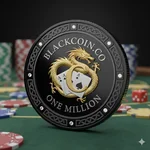Macau, the southern Chinese city on the Pearl River Delta, is known worldwide as a gambling powerhouse. Often dubbed the “Las Vegas of Asia,” it boasts an unrivaled concentration of casinos and a thriving gaming industry that draws millions of visitors each year. The region’s unique blend of Portuguese colonial heritage and modern Chinese culture creates a distinctive casino atmosphere, while its generous tax policies have turned Macau into a top global destination for high-stakes gambling.
Contents
- History
- Major Casinos in Macau
- Horse Racing
- Economic Impact
- Regulatory Environment
- Cultural Aspects of Gambling
- Future Trends
History
The origins of gambling in Macau date back to the 17th century when Portuguese traders first established a settlement. Initially, gambling was confined to modest local bets and card games played by residents and sailors. The modern era began in the 1960s with the opening of the first casino, Grand Lisboa, marking the start of Macau’s transformation into an international gaming hub.
Key milestones:
- 1967: Grand Lisboa opens, establishing the first modern casino.
- 1999: Transfer of sovereignty from Portugal to China; Macau retains autonomy under the “one country, two systems” principle.
- 2002-2004: Rapid expansion with new mega-resorts like Venetian Macao and MGM Macau.
- 2011: Macau surpasses Las Vegas as the world’s largest gambling center by revenue.
- 2020s: Shift towards online gambling platforms, yet land-based casinos remain dominant.
Major Casinos in Macau
Macau’s casino landscape is dominated by a handful of mega-resorts that offer gaming, hospitality, and entertainment under one roof. While each property has its own branding and themes, they share common features such as high-limit tables, extensive slot collections, and integrated luxury hotels.
- Venetian Macao – Known for its replica canals and grand ballroom.
- MGM Macau – Offers a blend of American casino culture with Asian flair.
- Grand Lisboa – Iconic tower with a distinctive architectural design.
- Galaxy Macau – Family-friendly resort featuring theme park attractions.
- Lusso Macau – Focuses on high-end clientele and exclusive gaming lounges.
Horse Racing
Beyond casino tables, horse racing is a cherished pastime in Macau. The Macau Jockey Club, founded in 1964, operates two primary racecourses: the main track at Taipa and a secondary circuit at Coloane.
- Race Types: Thoroughbred flat races, steeplechases, and special events such as the Macau Cup.
- Betting Options: Win, place, exacta, trifecta, and exotic bets like “superfecta” are available both on-site and via the club’s mobile app.
- Regulations: The club adheres to strict licensing for foreign jockeys and imports horses from Hong Kong, Japan, and Europe.
- Spectator Experience: VIP boxes, luxury restaurants, and live commentary enhance the viewing experience.
Economic Impact
The gambling sector contributes significantly to Macau’s GDP, employment, and tourism revenue. In 2023, casino earnings exceeded US$35 billion, supporting over 200,000 jobs across hospitality, retail, and transportation sectors.
Regulatory Environment
- Macau Gaming Inspection & Coordination Council (MAGICC) – Oversees licensing, compliance, and anti-money laundering measures.
- Taxation: Casinos pay a 12% tax on gaming revenue, encouraging reinvestment into infrastructure.
- Foreign Ownership: Limited to 10% of casino shares, ensuring local control.
- Responsible Gambling: Mandatory self-exclusion programs and public awareness campaigns are enforced across all licensed establishments.
Cultural Aspects of Gambling
Gambling in Macau is deeply intertwined with cultural traditions such as the Dragon Boat Festival, where locals play pai gow and chemin de fer to honor ancestral spirits. Additionally, many Chinese New Year celebrations feature casino promotions and “red envelope” bonuses.
Future Trends
- Online Gaming Expansion: With regulatory relaxation, virtual casinos are gaining traction while still complementing physical venues.
- Sustainability Initiatives: Resorts are adopting green building practices to reduce carbon footprints and appeal to eco-conscious travelers.
- Technology Integration: AI-powered customer service bots, biometric authentication for high-limit tables, and blockchain-based loyalty points are becoming mainstream.
- Diverse Entertainment Offerings: Integrating esports arenas, virtual reality arcades, and luxury spa experiences to broaden audience appeal beyond traditional gamblers.
In summary, Macau’s gambling industry is a complex tapestry of historical legacy, regulatory oversight, cultural significance, and relentless innovation. Whether you’re a high-stakes bettor, an avid horse racing fan, or simply curious about the city that keeps its casinos running round the clock, Macau offers a multifaceted experience that continues to evolve with global trends.
